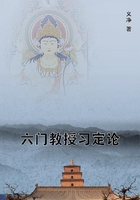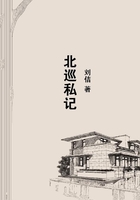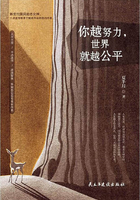CONCERNING BUDDHA AND CONFUCIUS
THE discoveries of the Portuguese and the Spaniards had brought the Christians of western Europe into close contact with the people of India and of China. They knew of course that Christianity was not the only religion on this earth. There were the Mohammedans and the heathenish tribes of northern Africa who worshipped sticks and stones and dead trees. But in India and in China the Christian conquerors found new millions who had never heard of Christ and who did not want to hear of Him, because they thought their own religion, which was thousands of years old, much better than that of the West.
As this is a story of mankind and not an exclusive history of the people of Europe and our western hemisphere, you ought to know something of two men whose teaching and whose example continue to influence the actions and the thoughts of the majority of our fellow-travellers on this earth.
In India, Buddha was recognised as the great religious teacher. His history is an interesting one. He was born in the Sixth Century before the birth of Christ, within sight of the mighty Himalaya Mountains, where four hundred years before Zarathustra (or Zoroaster), the first of the great leaders of the Aryan race (the name which the Eastern branch of the Indo-European race had given to itself), had taught his people to regard life as a continuous struggle between Ahriman, and Ormuzd, the Gods of Evil and Good. Buddha's father was Suddhodana, a mighty chief among the tribe of the Sakiyas. His mother, Maha Maya, was the daughter of a neighbouring king. She had been married when she was a very young girl. But many moons had passed beyond the distant ridge of hills and still her husband was without an heir who should rule his lands after him. At last, when she was fifty years old, her day came and she went forth that she might be among her own people when her baby should come into this world.
It was a long trip to the land of the Koliyans, where Maha Maya had spent her earliest years. One night she was resting among the cool trees of the garden of Lumbini. There her son was born. He was given the name of Siddhartha, but we know him as Buddha, which means the Enlightened One.
In due time, Siddhartha grew up to be a handsome young prince and when he was nineteen years old, he was married to his cousin Yasodhara. During the next ten years he lived far away from all pain and all suffering, behind the protecting walls of the royal palace, awaiting the day when he should succeed his father as King of the Sakiyas.
But it happened that when he was thirty years old, he drove outside of the palace gates and saw a man who was old and worn out with labour and whose weak limbs could hardly carry the burden of life. Siddhartha pointed him out to his coachman, Channa, but Channa answered that there were lots of poor people in this world and that one more or less did not matter. The young prince was very sad but he did not say anything and went back to live with his wife and his father and his mother and tried to be happy. A little while later he left the palace a second time. His carriage met a man who suffered from a terrible disease. Siddhartha asked Channa what had been the cause of this man's suffering, but the coachman answered that there were many sick people in this world and that such things could not be helped and did not matter very much. The young prince was very sad when he heard this but again he returned to his people.
A few weeks passed. One evening Siddhartha ordered his carriage in order to go to the river and bathe. Suddenly his horses were frightened by the sight of a dead man whose rotting body lay sprawling in the ditch beside the road. The young prince, who had never been allowed to see such things, was frightened, but Channa told him not to mind such trifles. The world was full of dead people. It was the rule of life that all things must come to an end. Nothing was eternal. The grave awaited us all and there was no escape.
That evening, when Siddhartha returned to his home, he was received with music. While he was away his wife had given birth to a son. The people were delighted because now they knew that there was an heir to the throne and they celebrated the event by the beating of many drums. Siddhartha, however, did not share their joy. The curtain of life had been lifted and he had learned the horror of man's existence. The sight of death and suffering followed him like a terrible dream.
That night the moon was shining brightly. Siddhartha woke up and began to think of many things. Never again could he be happy until he should have found a solution to the riddle of existence. He decided to find it far away from all those whom he loved. Softly he went into the room where Yasodhara was sleeping with her baby. Then he called for his faithful Channa and told him to follow.
Together the two men went into the darkness of the night, one to find rest for his soul, the other to be a faithful servant unto a beloved master.
The people of India among whom Siddhartha wandered for many years were just then in a state of change. Their ancestors, the native Indians, had been conquered without great difficulty by the war-like Aryans (our distant cousins) and thereafter the Aryans had been the rulers and masters of tens of millions of docile little brown men. To maintain themselves in the seat of the mighty, they had divided the population into different classes and gradually a system of "caste" of the most rigid sort had been enforced upon the natives. The descendants of the Indo-European conquerors belonged to the highest "caste," the class of warriors and nobles. Next came the caste of the priests. Below these followed the peasants and the business men. The ancient natives, however, who were called Pariahs, formed a class of despised and miserable slaves and never could hope to be anything else.















